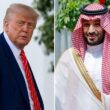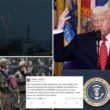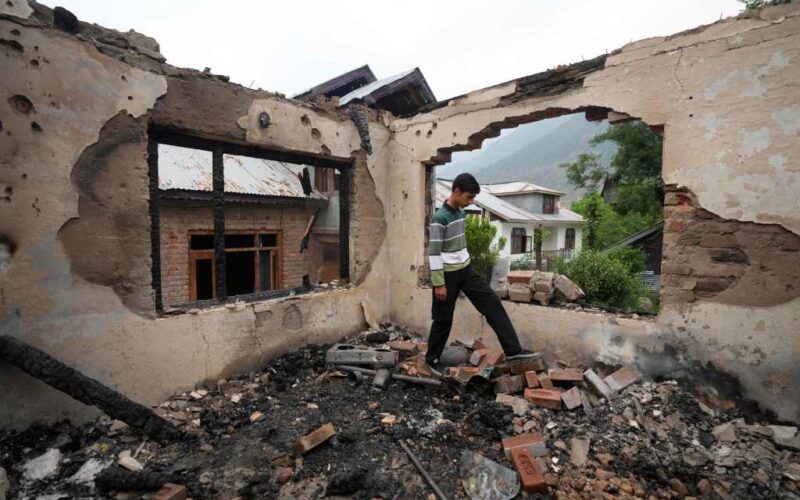The outbreak of violent skirmishing between two nuclear powers in Asia should be of deep concern to all Americans.
This week, India threatened “all out war” and launched a wave of missiles into neighboring Pakistan, killing scores of civilians. Pakistan has now retaliated, downing Indian drones and shelling villages along India’s border with the independently-administered region of Kashmir.
That the spiraling conflict is predicated on a premature conclusion by India that Pakistan was responsible for a terrorist attack in Kashmir last month makes the nuclear brinkmanship all the more alarming.
President Trump can and should act to de-escalate the violence before it gets further out of control.
Thus far, the administration has given mixed messages about its responsibility to resolve the conflict. On the one hand, Trump has not blamed Pakistan for the terrorist attack that sparked India’s dangerous escalation. He also suggested that the parties “work it out themselves.” But as the conflict spirals, with decades of animosity between the countries and powerful nuclear arsenals pointed at one another, the administration has now signaled it would get involved.
Here’s what the president can do:
First, Trump should call for an independent investigation into the terrorist incident in Kashmir. He should offer U.S. investigative resources from the FBI and CIA to help get to the bottom of the attack, which killed more than a dozen tourists in the Kashmir region. India was very quick to blame Pakistan, which has vigorously denied any involvement.
Second, as former chairman of Congress’ Government Reform Committee’s National Security Committee, with oversight of both the Departments of Defense and State, I learned one must see India’s grave and unfounded charge against Pakistan in context. India and Pakistan have long viewed their toxic relationship as a zero-sum game, in which each country sees disadvantage in the success of the other and worse, sees advantage in the other’s suffering.
Trump must help India and Pakistan see beyond this dynamic. Indeed, both countries have much to offer to the United States. India is a huge democracy and an effective economic and political counterweight to China in the Indo-Pacific region. Meanwhile, Pakistan is a major non-NATO ally of the United States.
During his State of the Union address earlier this year, Trump singled out Pakistan for praise for their role in capturing the ISIS terrorist who masterminded the suicide bombing that killed 13 U.S. servicemen at Afghanistan’s Kabul Airport in 2021. Afghanistan remains unruly and dangerous and Pakistan is a willing and able partner in facing those threats, including a resurgent Al Qaeda.
In a zero-sum dynamic of India-Pakistan politics, each of these facts would drive the other crazy. Trump should therefore deal with each country on their own terms and structure healthy bilateral relationships with each.
Next, the president should personally call upon the leaders of India and Pakistan to meet and to work to break the historic cycle of conflict and distrust between them. A strong, united, South Asia is good for America and the world.
Finally, Trump should drain the swamp of troublemakers in our own political system by issuing an executive order that requires a national security review of lobbying activity on behalf of each country. These lobbyists — often paid for by the respective governments or their proxies — often disseminate propaganda that can impact stability in the region and ultimately, U.S. national security.
For example, there are bills floating around Congress today that call for the release of Pakistan’s disgraced former Prime Minister Imran Khan — an avowed antisemite who called Osama Bin Laden a martyr and is now jailed for treason. Such legislation is meant to destabilize Pakistan’s internal politics, which is in no one’s interests, except those who promoted such a terrible idea in the first place. Its origins and backers should be transparent.
President Trump can make an immediate, bold statement that India and Pakistan both matter to the United States and to the world. While the president’s plate is full when it comes to conflict resolution in Ukraine and the Middle East, given the stakes of a potential nuclear conflict between India and Pakistan, this is one emerging battlefront he cannot afford to ignore.
Shays, a former congressman from Connecticut, served as a senior member of the House Budget, Financial Services, Homeland Security, and Government Reform committees.








